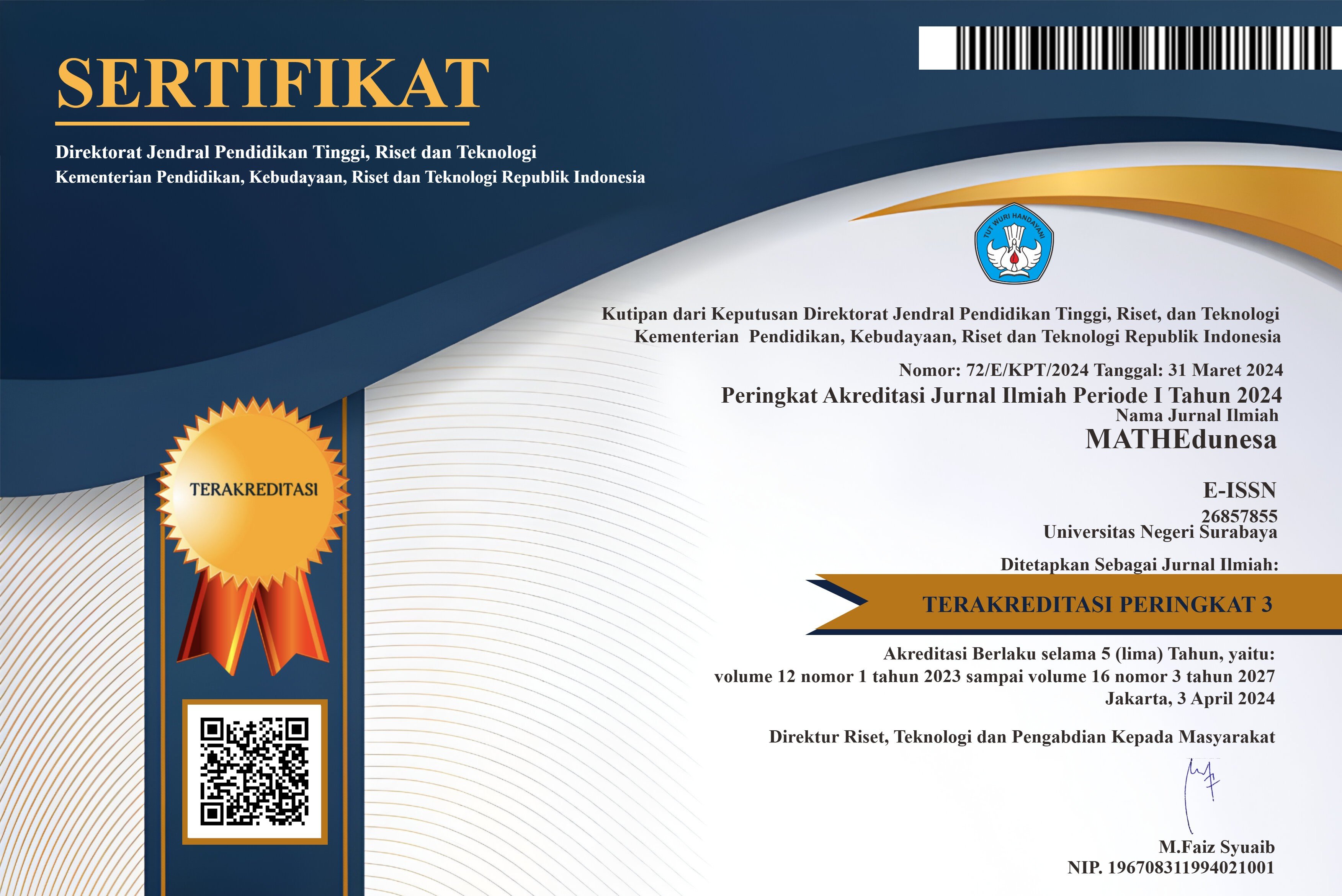MATHEMATICAL JUSTIFICATION OF SENIOR HIGH SCHOOL STUDENTS IN STATISTICS
DOI:
https://doi.org/10.26740/mathedunesa.v9n2.p297-304Abstract
Justification is the process of justifying a claim that is supported with evidence. Justification is the center of mathematics. Justification plays an important role in learning because it can help students improve understanding of mathematical concepts. By using a qualitative approach, this study aims to analyze the mathematical justification of high school students in solving problems on statistical topics. This research was conducted on 122 high school students by giving justification test questions on the topic of statistics resulted in 17% (21 students) included in the level justification level 3, 16% (19 students) included in level 2, 47% (47 students) included in level 1, and 20% (25 students) the rest are included in level 0. Further analysis was carried out to see the mathematical justification process by each level. The mathematical justification process consists of three stages, 1) the process of recognition; 2) the development process (building-with), and 3) understanding (awareness) process. Level 3 and level 2 students can recognize the problem and determine the right strategy to solve the problem, level 3 and level 2 students are also able to execute the strategy and interpret the results of the calculations they have done. The difference in level 3 and level 2 students lies in the understanding the concepts they have. Level 1 students can recognize problems and determine solution strategies. Although level 1 students can recognize and do calculations well, level 1 students fail in interpreting the results of calculations performed. While students who are level 0 are not able to recognize the problem, so level 0 students do not carry out the justification process.Downloads
Download data is not yet available.
Downloads
Published
2020-07-08
Issue
Section
Articles
 Abstract views: 206
,
Abstract views: 206
, PDF Downloads: 178
PDF Downloads: 178




